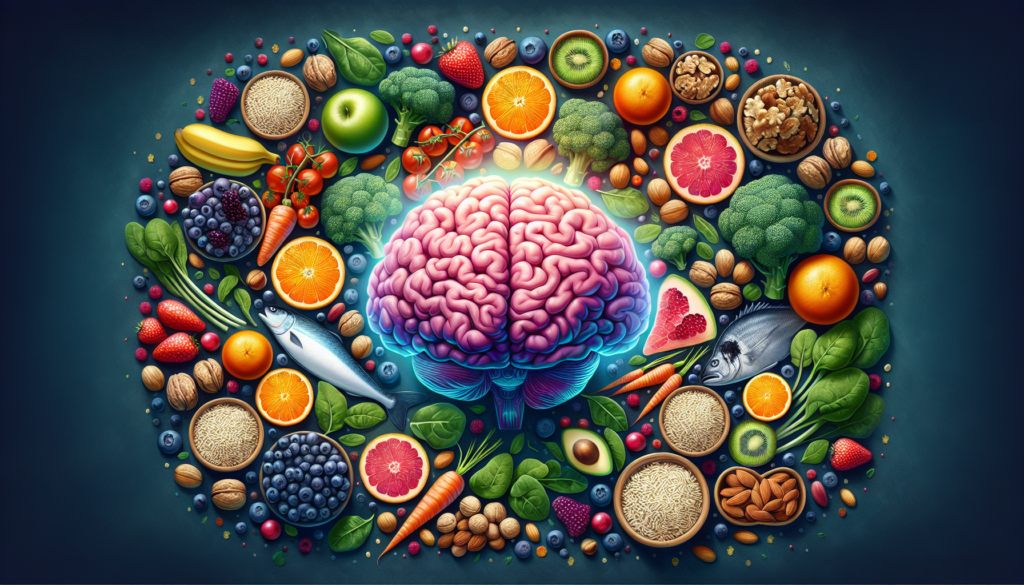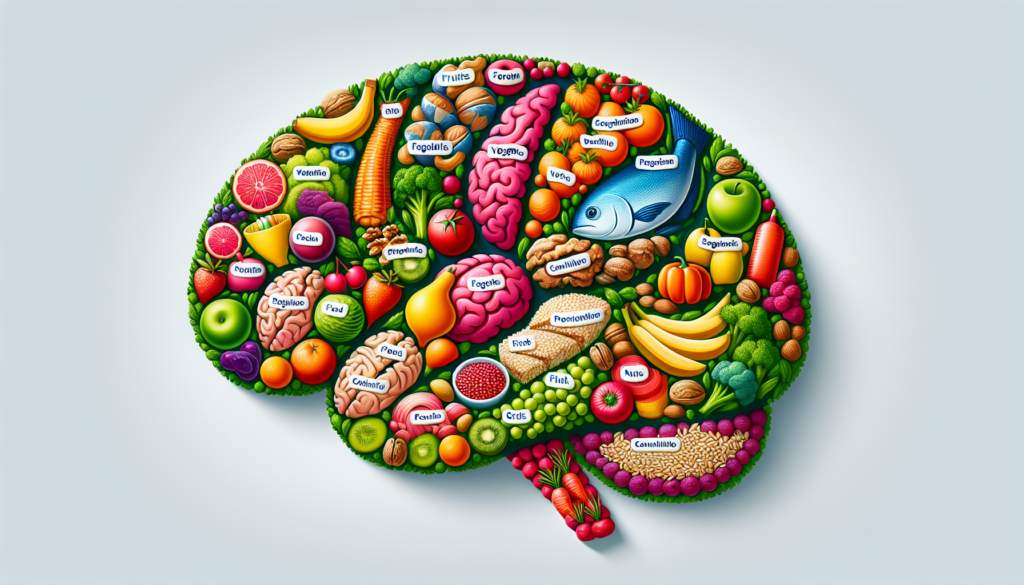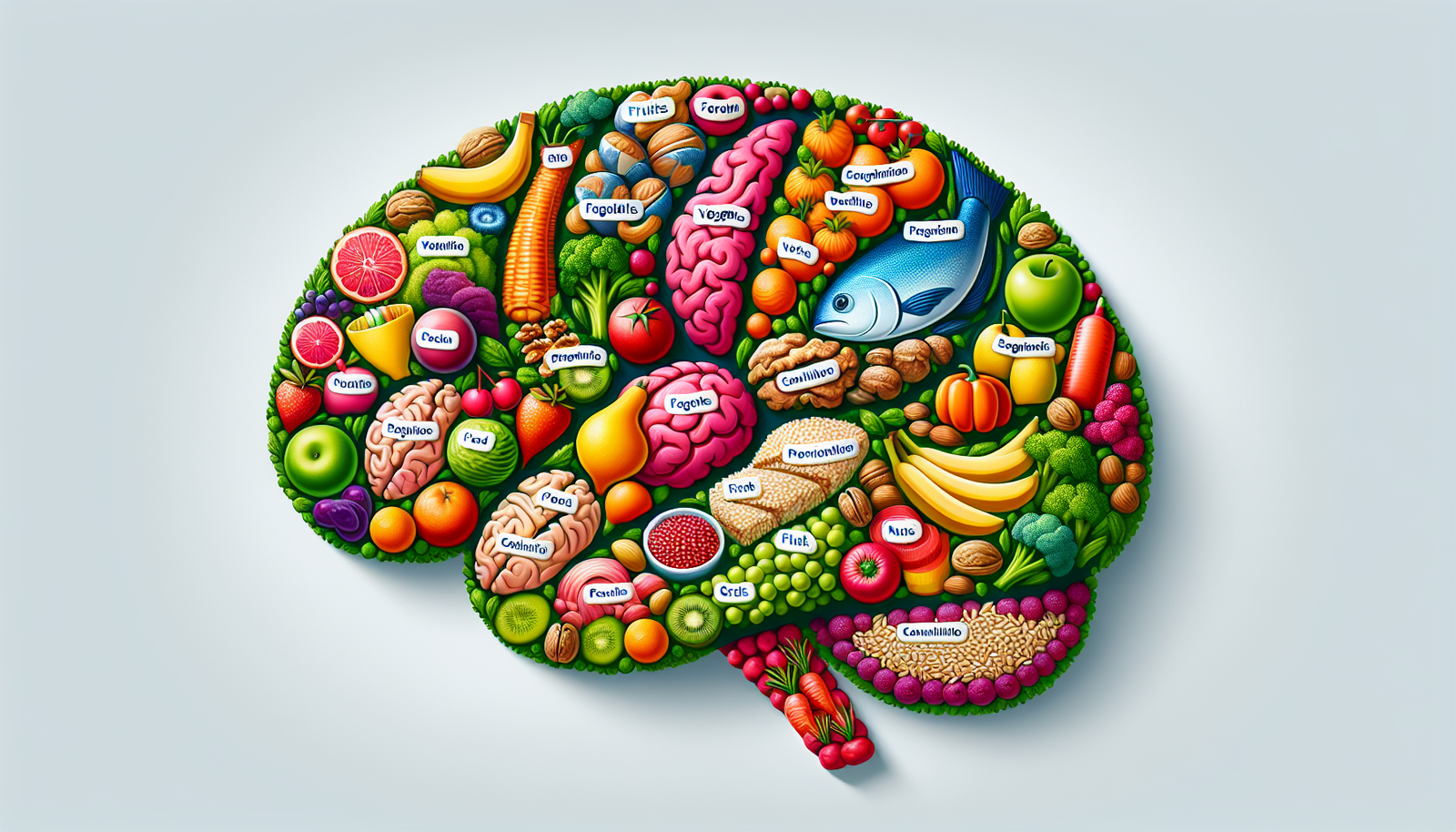Hey there! Did you know that what you eat can have a big impact on your brain health? Well, it turns out that certain foods can actually help fight cognitive decline. In this article, we’ll explore some of the top foods that have been shown to boost brain health and keep your cognitive abilities sharp as you age. So, if you’re interested in learning about delicious ways to improve your brain function, keep reading!

The Importance of Diet for Cognitive Health
Maintaining good cognitive health is essential for a high quality of life. Our cognitive abilities play a crucial role in our daily activities, decision-making, and overall well-being. And while there are various factors that can affect our cognitive health, one that has gained significant attention is diet. The food we consume has a direct impact on our brain health and function, and adopting a diet that supports cognitive health is becoming increasingly important.
The link between diet and cognitive decline
Numerous studies have shown a strong link between our dietary choices and cognitive decline. In fact, research suggests that a poor diet can contribute to the development and progression of age-related cognitive decline, such as Alzheimer’s disease. On the other hand, adopting a diet rich in certain nutrients can help promote brain health and prevent cognitive decline.
The role of antioxidants in brain health
Antioxidants are powerful compounds that help protect our cells, including those in our brain, from damage caused by harmful molecules called free radicals. When free radicals accumulate in the body, they can lead to oxidative stress, which has been associated with cognitive decline and neurodegenerative diseases. By including antioxidant-rich foods in your diet, you can help combat this oxidative stress and support your brain health.
The impact of inflammation on cognitive function
Inflammation is a natural response initiated by our immune system to protect our body against harmful stimuli. However, chronic inflammation can have detrimental effects on our cognitive function. Research suggests that chronic inflammation in the brain may contribute to cognitive decline and increase the risk of developing neurodegenerative diseases. By following an anti-inflammatory diet, you can help reduce inflammation and support your brain health.
Top Foods for Cognitive Health
When it comes to boosting cognitive health, some foods stand out for their exceptional benefits. Including these foods in your regular diet can provide you with the nutrients needed to support brain health and function.
Berries
Berries, such as blueberries, strawberries, and raspberries, are not only delicious but also incredibly beneficial for your brain health. Here’s why:
Rich in antioxidants
Berries are rich in antioxidants, specifically flavonoids, which have been shown to have powerful neuroprotective effects. These antioxidants help reduce oxidative stress, combat inflammation, and protect brain cells from damage.
Promote brain cell communication
Berries have been found to enhance brain cell communication, which is essential for optimal cognitive function. The compounds present in berries can improve signaling between brain cells and enhance memory, learning, and decision-making abilities.
Reduce inflammation
Inflammation in the brain is a common feature of neurodegenerative diseases. Studies have shown that the antioxidants found in berries can help reduce inflammation in the brain, thereby protecting against cognitive decline.
Fatty fish
Fatty fish, such as salmon, trout, and sardines, are excellent sources of omega-3 fatty acids, which play a crucial role in brain health. Here’s why you should include fatty fish in your diet:
Omega-3 fatty acids for brain health
Omega-3 fatty acids are essential fats that our body needs but cannot produce on its own. These fats are highly concentrated in the brain and are essential for its structure and function. Consuming fatty fish can provide you with the necessary omega-3 fatty acids to support brain health.
Improved memory and cognitive function
Studies have consistently shown that omega-3 fatty acids found in fatty fish can improve memory and cognitive function. These healthy fats enhance brain cell communication, decrease inflammation, and promote the growth of new brain cells.
Reduced risk of cognitive decline
The consumption of fatty fish has been associated with a reduced risk of age-related cognitive decline and neurodegenerative diseases. The omega-3 fatty acids in fatty fish help protect against brain cell damage and maintain optimal brain health as we age.
Leafy greens
Leafy greens, such as spinach, kale, and broccoli, are not only great for overall health but also for brain health. Here’s why leafy greens should be on your plate:
Nutrient-rich and low in calories
Leafy greens are packed with essential nutrients, including vitamins, minerals, and antioxidants. They are also low in calories, making them an ideal food for maintaining a healthy weight while providing your brain with vital nutrients.
High levels of antioxidants
Similar to berries, leafy greens contain a variety of antioxidants that help protect your brain cells from damage caused by free radicals. These antioxidants promote brain health and reduce the risk of cognitive decline.
Protective effects against cognitive decline
Research suggests that consuming leafy greens regularly is associated with a reduced risk of cognitive decline. The high levels of nutrients and antioxidants in leafy greens support cognitive function and help maintain brain health over time.
Turmeric
Turmeric, a vibrant yellow spice commonly used in cooking, has been praised for its potential cognitive benefits. Here’s why turmeric should be a staple in your kitchen:
Curcumin as a powerful antioxidant
Curcumin, the active compound in turmeric, is a potent antioxidant that helps protect the brain from oxidative stress and inflammation. It has been shown to cross the blood-brain barrier, making it effective in supporting brain health.
Anti-inflammatory properties
Chronic inflammation in the brain can contribute to cognitive decline and neurodegenerative diseases. Curcumin has been found to possess strong anti-inflammatory properties, which can help reduce inflammation in the brain and support cognitive function.
Potential to improve memory and attention
Research suggests that turmeric and its active compound curcumin may have memory-enhancing effects. Curcumin has been found to increase levels of brain-derived neurotrophic factor (BDNF), a protein that plays a crucial role in brain health and the formation of new memories.
Walnuts
Walnuts are not only delicious but also packed with nutrients that support brain health. Here’s why you should consider adding walnuts to your diet:
High in antioxidants and healthy fats
Walnuts are rich in antioxidants and healthy fats, including omega-3 fatty acids. These compounds help reduce oxidative stress, combat inflammation, and support brain health.
Improvement in cognitive function
Emerging research suggests that regular walnut consumption is associated with improved cognitive function. The combination of antioxidants and healthy fats in walnuts supports brain cell communication, protects against oxidative damage, and enhances overall cognitive abilities.
Lower risk of neurodegenerative diseases
The antioxidants and healthy fats in walnuts have been found to have protective effects against neurodegenerative diseases, such as Alzheimer’s disease. Including walnuts in your regular diet may help reduce the risk of developing these conditions and support long-term brain health.

Other Foods for Cognitive Health
While the aforementioned foods have gained significant attention for their brain-boosting properties, there are several other foods that can also contribute to cognitive health. Here are a few worth mentioning:
Dark chocolate
Dark chocolate, particularly those rich in cacao, contains powerful antioxidants and anti-inflammatory compounds. Regular consumption of dark chocolate has been associated with improved blood flow to the brain, enhanced cognitive performance, and a reduced risk of cognitive decline.
Oranges
Oranges and other citrus fruits are excellent sources of vitamin C, which is an antioxidant known for its brain-protective properties. Vitamin C helps fight oxidative stress and reduces the risk of cognitive decline.
Egg yolks
Egg yolks are packed with nutrients that support brain health, including choline, vitamin B12, and antioxidants. These nutrients promote cognitive function, memory, and overall brain health.
Pumpkin seeds
Pumpkin seeds are rich in antioxidants, healthy fats, and magnesium, all of which play a role in supporting brain health. Regular consumption of pumpkin seeds can contribute to improved cognitive function and reduce the risk of neurodegenerative diseases.
Green tea
Green tea contains catechins, powerful antioxidants that have been linked to improved brain function and memory. The consumption of green tea has also been associated with a reduced risk of cognitive impairment and neurodegenerative diseases.
In conclusion, adopting a diet that supports cognitive health is crucial for maintaining optimal brain function and reducing the risk of cognitive decline. Including foods rich in antioxidants, omega-3 fatty acids, and anti-inflammatory compounds, such as berries, fatty fish, leafy greens, turmeric, and walnuts, can provide you with the nutrients needed to support brain health. Additionally, incorporating other foods like dark chocolate, oranges, egg yolks, pumpkin seeds, and green tea can further boost cognitive function and protect against cognitive decline. By making mindful choices about the foods we consume, we can nourish our brains and maintain cognitive health throughout our lives.

